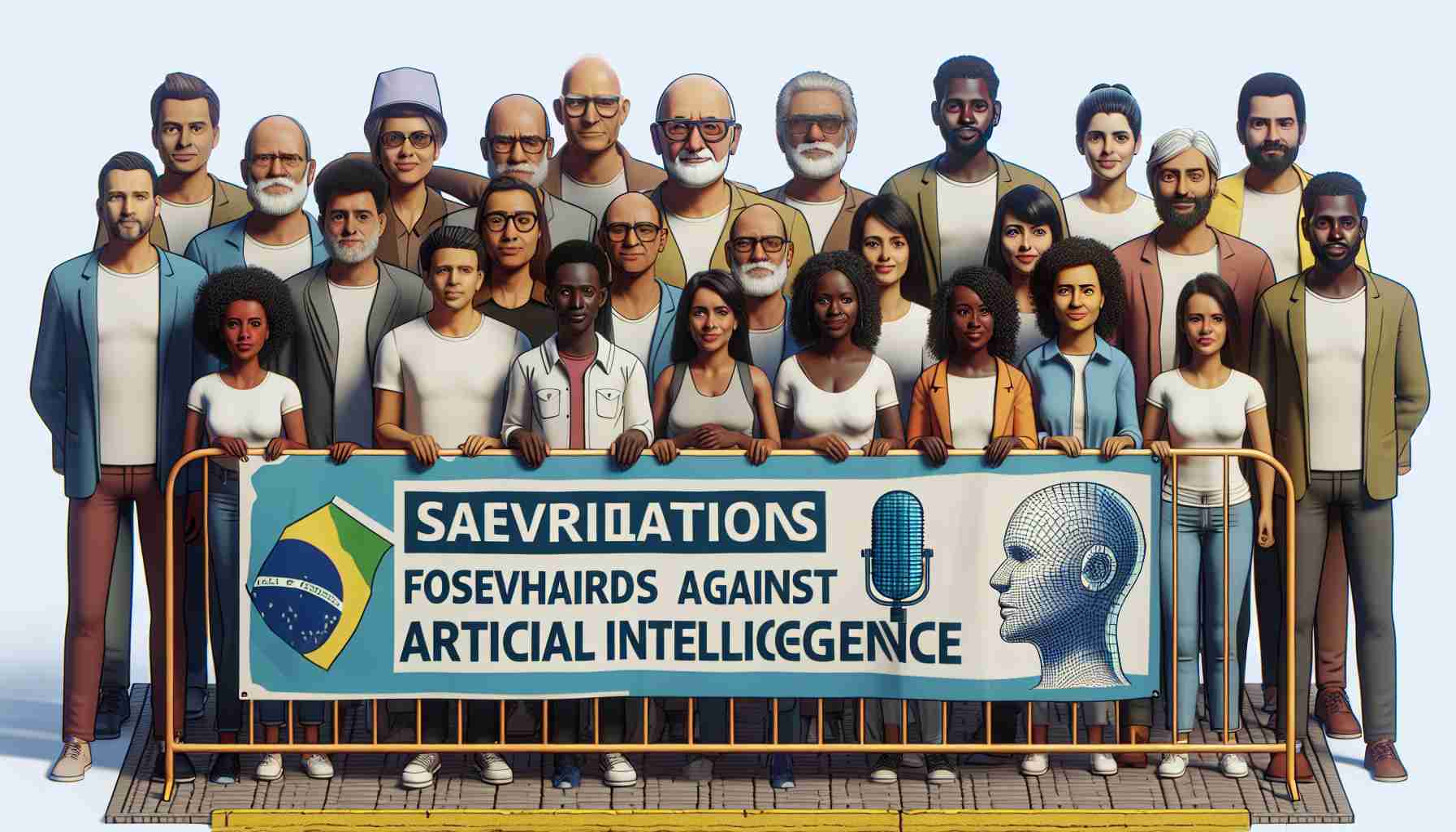Brazil’s voice acting community has taken a strong stance to safeguard their profession amidst growing concerns about artificial intelligence (AI) technologies potentially replacing their skills. Vocal artists throughout the nation joined forces, initiating a robust campaign aimed at preventing AI from impacting their roles in the industry. This has sparked considerable support on social media platforms, with both actors and dubbing enthusiasts posting videos to amplify the movement’s influence with each new upload.
The very livelihood of these professionals is at stake, compelling them to seek firmer assurances in the form of protective contractual clauses with studios at the commencement of every new project. From March 31st onward, voice actors across Brazil have ceased signing contracts with any studio that fails to include such clauses against the use of generative AI and related technologies. Francisco Júnior, a renowned voice actor known for roles such as Aquaman, has emphasized the collective effort to secure legal safeguards for their craft. The rising movement was also highlighted for not being anti-technology but rather for establishing legal fortifications against AI misuse.
The drive to regulate AI is not unique to Brazil. With months passing in 2024, Brazilian voice actors discovered that their peers worldwide shared similar concerns. The United Voice Artist (UVA), an international advocacy group, comprises voice actors from the United States, Canada, Spain, Germany, and beyond, striving for AI regulation in dubbing.
Dubbing Viva and UVA have articulated their just cause on social networks, clarifying that their battle is not against studios themselves, but for the responsible usage of their voices in light of technological progress.
Apart from AI’s capability to replicate tasks rapidly, its potential to mimic human voices stands out as a significant threat to voice actors. Tati Keplmair, the voice behind Nami from the popular anime “One Piece,” pointed out the risk of losing the human touch essential to her beloved art form should there be insufficient regulation.
A crucial legislation, Bill 2338/2023, is currently in the review process in Brazil’s Senate Federal. This bill seeks to ensure that AI systems developed and implemented will respect fundamental rights and promote the security of human professionals. Commencing on February 21st of this year, the bill is undergoing scrutiny under the Temporary Internal Committee on Artificial Intelligence in Brazil and is being reported by Senator Eduardo Gomes.
The voice acting community in Brazil has ignited a debate that touches on several important questions and challenges surrounding the intersection of AI and creative industries:
Key Questions:
1. How can voice actors protect their livelihoods against the rise of AI technology that can mimic human voices?
2. What are the potential legal frameworks that can be implemented to regulate AI in the voice acting industry?
3. How does the use of AI in voice acting impact the quality and authenticity of dubbed content?
Key Challenges and Controversies:
– Finding the right balance between embracing technological innovation and protecting human jobs is a significant challenge. There is concern that AI could lead to widespread unemployment among voice actors if not properly regulated.
– There is controversy over the ethics of using AI to replicate human voices without proper consent or compensation, which can be seen as a form of intellectual property infringement.
– Implementing legislation like Bill 2338/2023 involves complex legal considerations, including defining the scope of AI usage and ensuring the rights of voice actors are upheld without stifling technological progress.
Advantages of AI in Voice Acting:
– AI can greatly reduce the time and cost associated with dubbing and provide accessibility for content in multiple languages.
– It may enable content creators to easily update or edit audio content without the need for the original voice actor to re-record lines.
Disadvantages of AI in Voice Acting:
– There is a risk of AI technology replacing human jobs, leading to unemployment in the voice acting industry.
– AI-generated voices may lack the emotional depth and nuance that human voice actors bring, potentially diminishing the quality of the final product.
As for related links, those seeking more information on this topic might explore the following:
– Brazilian Federal Senate for updates on legislation surrounding AI in Brazil.
– United Voice Artists (UVA) for insights into global efforts for AI regulation in the voice acting industry.
Please note that the URLs provided lead to the main domain of the respective organizations, and whether the specific details about the discussed topic (Brazilian voice actors’ movement or Bill 2338/2023) will be available on their main pages will depend on the current focus of these organizations.

